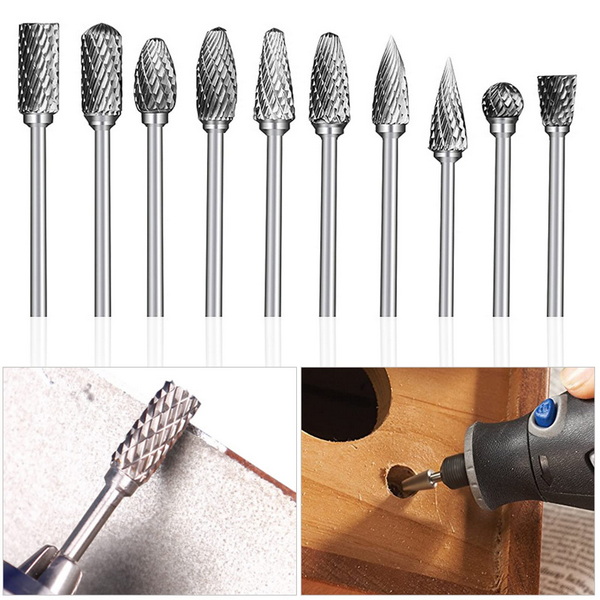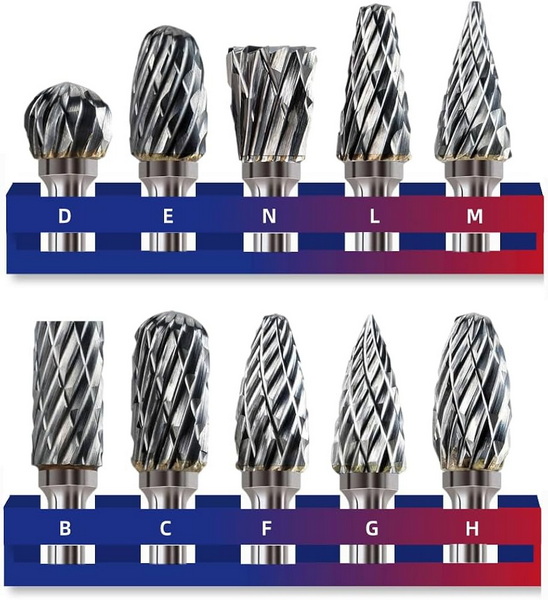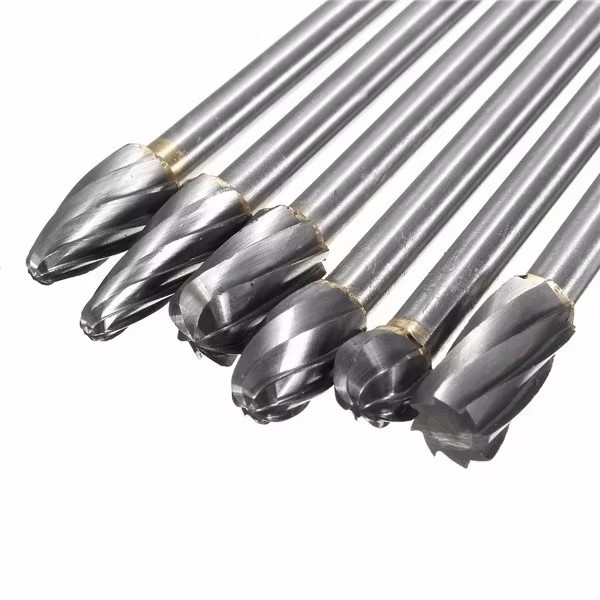Content Menu
● Introduction to Tungsten Carbide
>> Physical and Chemical Properties
>>> Hardness and Brittleness
>>> Thermal Resistance
● Challenges in Cutting Tungsten Carbide
>> Limitations of Conventional Tools
>> Specialized Cutting Methods
>>> 1. Diamond Tools
>>> 2. Electrical Discharge Machining (EDM)
>>> 3. Laser Cutting
● Emergency Removal of Tungsten Carbide Rings
>> The "Cracking Off" Technique
>>> Safety Protocols
>> Alternative Emergency Methods
>>> 1. Hammer and Block
>>> 2. Ring Cracker Tools
>>> 3. Medical Intervention
● Environmental and Health Considerations
>> Environmental Impact of Tungsten Mining
>> Health Risks
● Case Study: Industrial Accident Response
● Conclusion
● FAQs
>> 1. Can a Hospital Emergency Room Cut Tungsten Carbide?
>> 2. How Long Does It Take to Cut Tungsten Carbide?
>> 3. Does Tungsten Carbide Rust or Corrode?
>> 4. Is Tungsten Carbide More Durable Than Titanium?
>> 5. Can Broken Tungsten Rings Be Repaired?
● Citations:
Tungsten carbide, a material celebrated for its extraordinary hardness and durability, is widely used in industrial machinery, cutting tools, and jewelry. However, its resistance to wear and deformation raises critical questions about its removability in emergencies. This article explores the challenges of cutting tungsten carbide, the methods available for emergency removal, and whether it is truly "impossible" to manage in urgent scenarios.

Introduction to Tungsten Carbide
Tungsten carbide (WC) is a composite material made by bonding tungsten particles with a metallic binder, typically cobalt or nickel. Its creation involves sintering at temperatures exceeding 1,400°C, resulting in a dense, ultra-hard structure. With a Mohs hardness rating of 9–9.5 (second only to diamond), tungsten carbide is nearly impervious to scratches and wear. However, this hardness also renders it brittle, meaning it can fracture under extreme pressure or impact.
Key Applications:
- Industrial cutting tools (drill bits, saw blades)
- Medical instruments (surgical blades)
- Jewelry (wedding bands, watch components)
- Military armor-piercing ammunition
Physical and Chemical Properties
Hardness and Brittleness
Tungsten carbide's Vickers hardness ranges from 1,500 to 2,600 HV, depending on its composition. This hardness makes it ideal for abrasive environments but complicates cutting or reshaping. Its brittleness, however, means it lacks the ductility of metals like gold or titanium, making it prone to cracking rather than bending.
Thermal Resistance
Tungsten carbide retains structural integrity at temperatures up to 500°C, but rapid thermal changes can cause stress fractures. This property is critical when using heat-based cutting methods like lasers.
Challenges in Cutting Tungsten Carbide
Traditional machining tools fail against tungsten carbide due to its hardness. For example, high-speed steel (HSS) blades wear out within seconds of contact. Even advanced carbide-tipped tools struggle unless paired with specialized techniques.
Limitations of Conventional Tools
- Grinding Wheels: Standard abrasive wheels disintegrate quickly.
- Drills: Standard drill bits blunt immediately.
- Saws: Most saw blades cannot penetrate the material.
Specialized Cutting Methods
1. Diamond Tools
Diamond, the hardest known material, is the primary choice for cutting tungsten carbide. Diamond-coated blades or grinding wheels slowly abrade the material, but the process generates intense heat, requiring coolant systems to prevent damage.
Process:
- Low cutting speeds (10–30 m/min) to avoid overheating.
- Continuous coolant flow to dissipate heat.
- Frequent blade replacements due to diamond wear.
2. Electrical Discharge Machining (EDM)
EDM uses electrical sparks to erode the material, bypassing the need for physical contact. This method is precise but slow and energy-intensive.
Advantages:
- No tool wear.
- Suitable for intricate shapes.
Disadvantages:
- Limited to conductive materials (requires a metallic binder in WC).
- High operational costs.
3. Laser Cutting
High-power lasers melt or vaporize tungsten carbide, but the process demands precise control to avoid thermal cracking. Fiber lasers (1,064 nm wavelength) are most effective.
Parameters:
- Power: 500–1,000 W.
- Pulse duration: Nanosecond or picosecond pulses for clean cuts.

Emergency Removal of Tungsten Carbide Rings
Tungsten carbide rings are popular for their scratch resistance but pose risks during emergencies like finger swelling due to injury. Unlike gold or platinum rings, they cannot be cut with standard ring cutters.
The "Cracking Off" Technique
This method exploits the material's brittleness. Tools like vice grips apply controlled pressure until the ring fractures.
Step-by-Step Process:
1. Stabilize the finger with padding.
2. Position vice grips on opposite sides of the ring.
3. Gradually tighten the grips until the ring snaps.
Safety Protocols
- Wear protective gloves and eyewear.
- Avoid twisting motions to prevent finger injury.
- Use medical-grade lubricants if swelling is present.
Alternative Emergency Methods
1. Hammer and Block
Place the ring on a hard surface and strike it with a hammer. The impact shatters the ring, but precision is critical to avoid harming the finger.
2. Ring Cracker Tools
Specialized devices like the *Rotaring® Ring Cracker* apply radial pressure to split the ring cleanly.
3. Medical Intervention
In extreme cases, hospitals may use oscillating saws with diamond-coated blades or hydraulic cutters.
Environmental and Health Considerations
Environmental Impact of Tungsten Mining
Tungsten extraction often involves open-pit mining, which contributes to:
- Habitat destruction.
- Soil and water contamination from heavy metals.
- High carbon emissions (3–5 tons of CO₂ per ton of tungsten).
Sustainable Alternatives:
- Recycling tungsten carbide scrap (up to 95% recyclable).
- Using bio-based binders instead of cobalt.
Health Risks
- Dust Inhalation: Grinding tungsten carbide produces fine dust linked to lung fibrosis ("hard metal disease").
- Nickel Allergies: Some rings contain nickel binders, causing dermatitis in sensitive individuals.
Case Study: Industrial Accident Response
In 2023, a factory worker in Germany had a tungsten carbide drill bit lodged in their hand after a machinery malfunction. Emergency responders used a combination of diamond saws and EDM to safely remove the fragment without damaging surrounding tissue. This case underscores the importance of specialized tools and trained personnel in handling tungsten carbide emergencies.
Conclusion
Tungsten carbide is not impossible to cut in emergencies, but its removal demands specialized tools and techniques. While its hardness complicates traditional methods, its brittleness allows for innovative solutions like controlled fracturing. Awareness of these methods—and their risks—is vital for industrial workers, jewelers, and emergency responders.

FAQs
1. Can a Hospital Emergency Room Cut Tungsten Carbide?
Most ERs use ring crackers or diamond-coated oscillating saws for removal. Laser cutters are rare due to cost.
2. How Long Does It Take to Cut Tungsten Carbide?
Using diamond tools, cutting a 5mm-thick ring takes 10–15 minutes. EDM may require hours.
3. Does Tungsten Carbide Rust or Corrode?
No, it is highly resistant to corrosion, making it suitable for marine environments.
4. Is Tungsten Carbide More Durable Than Titanium?
Yes—tungsten carbide is 3x harder than titanium and far more scratch-resistant.
5. Can Broken Tungsten Rings Be Repaired?
No, the material cannot be soldered or welded. Broken rings must be replaced.
Citations:
[1] https://www.mtb2b.tw/en/articles/182
[2] https://shop.machinemfg.com/how-to-cut-tungsten-carbide-rods-an-overview/
[3] https://newmanbands.com/can-tungsten-rings-be-cut-off/
[4] https://www.larsonjewelers.com/pages/can-tungsten-rings-be-cutoff
[5] https://www.ringrescue.com/blog/emergency-stuck-tungsten-ring-removal
[6] https://www.alamy.com/stock-photo/tungsten-carbide.html
[7] https://www.alamy.com/stock-photo/tungsten-carbide-tool.html
[8] https://www.youtube.com/watch?v=tCI0nGqcfLE
[9] https://redwoodrings.com/blogs/redwood-rings-blog/tungsten-ring-break
[10] https://blog.ringsmaker.com/facts-about-tungsten-rings-can-they-be-cut-off/
[11] https://create.vista.com/photos/tungsten-carbide/
[12] https://www.ringrescue.com/blog/cutting-tungsten-rings-are-there-risks
[13] https://shop.machinemfg.com/the-pros-and-cons-of-tungsten-carbide-a-comprehensive-guide/
[14] https://bmedesign.engr.wisc.edu/public/projects/f19/ring_cutter
[15] https://www.reddit.com/r/askscience/comments/f02z1/materials_science_question_why_does_an_extremely/
[16] https://passionblade.com/why-is-tungsten-carbide-hard-understanding-its-unique-properties/
[17] https://editverse.com/know-the-material-tungsten-carbide-the-cutting-edge-of-durability/
[18] https://www.zzbetter.com/new/Problems-and-Causes-of-Carbide-Cutting-Tools.html
[19] https://www.thevintagegentlemen.com/blogs/news/tungsten-carbide-rings-facts-and-myths-of-this-popular-mens-wedding-ring
[20] https://www.gettyimages.hk/%E5%9C%96%E7%89%87/tungsten-carbide?page=3
[21] https://www.istockphoto.com/photos/tungsten-carbide
[22] https://stock.adobe.com/search/images?k=carbide+cutting
[23] https://stock.adobe.com/search?k=tungsten+carbide
[24] https://www.rembar.com/is-it-difficult-to-precision-machine-pure-tungsten/
[25] https://www.samaterials.com/tungsten-carbide-cobalt-an-overview.html
[26] http://www.tungsten-carbide.com.cn/tungsten-carbide-machining.html
[27] https://www.applecarbide.com/article/why-is-tungsten-carbide-used-for-cutting-tools.html
[28] https://industrialmetalservice.com/metal-university/the-challenges-of-tungsten-machining/
[29] https://www.youtube.com/watch?v=poM423pewRE
















